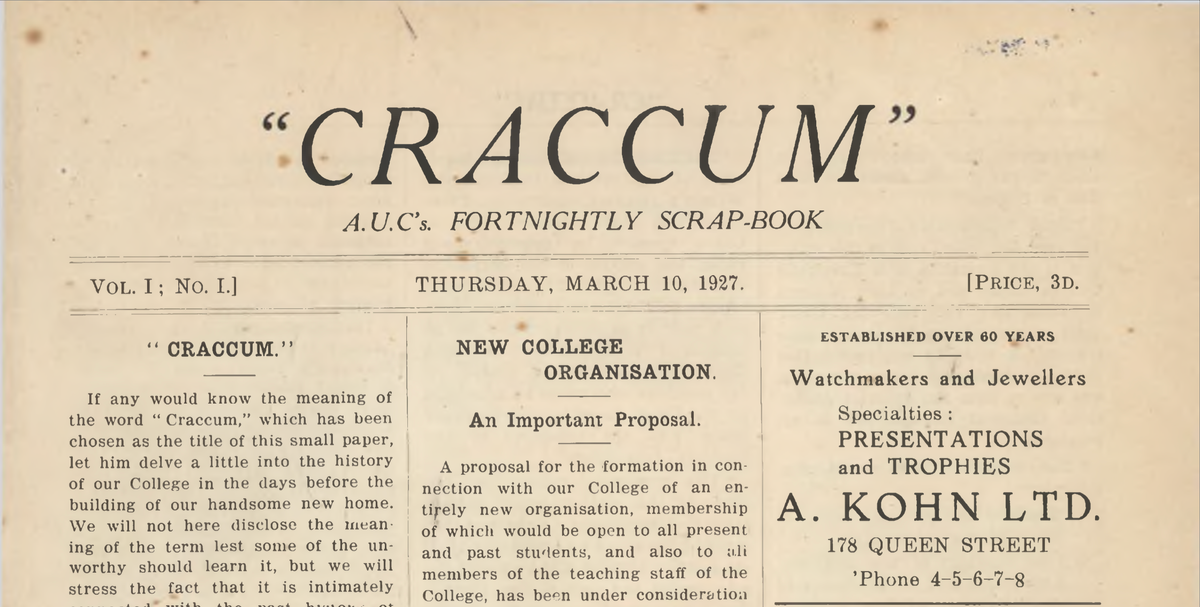'What Craccum Means to Me' by an Anonymous AUSA Election Candidate
After Craccum's election coverage was paused, a kind candidate reached out to share their thoughts on everything that has been happening.

Editor’s note: All identifying information has been removed or redacted to ensure fairness.
On Tuesday afternoon, the Craccum team were instructed by AUSA to pause all of our coverage of the ongoing student elections. This demand came after we and our contributors had worked hard to obtain the names of candidates, reach out to all of them for interviews, and had already written some articles.
Candidates who had signed up to be interviewed were informed of AUSA's decision, and we apologised deeply for any inconveniences caused. Not too long after, we received a thoughtful email from one of the candidates. We’ve withheld their identity to avoid giving favour to any candidates and to prevent the piece from being challenged or blocked by AUSA. The candidate's email outlined how Craccum could potentially have been beneficial for them, and went on to express what Craccum means to them as a student of this university. They wrote so beautifully and eloquently that we immediately asked whether they would consent to our publishing their words.
I hope that by sharing this, it can warm your heart, just as it did mine when I read it. Thank you once again to the lovely candidate.
I hope this email finds you well amidst everything going on. I'm genuinely gutted to hear that AUSA has advised pausing all candidate interviews. I was really looking forward to it, as it could have helped amplify my message and hopefully garner some extra support in the election. That said, even without the formal interview, I wanted to share a few thoughts because Craccum means a lot to me.
As a student here at UoA, my days are often a monotonous grind of [redacted], leaving me feeling trapped in a solitary vortex, like building walls in a forgotten corner of human society, detached and sometimes utterly nihilistic. But stumbling upon a few Craccum events by chance felt like swinging open a door to a bustling street district, suddenly reconnecting me to the real world in the most authentic way. The articles in Craccum on mental health, identity, or academic pressures go far beyond surface-level venting. They're profound mirrors for self-reflection, helping us find hope and motivation to push through our research in moments of resonance.
Through getting involved, I started feeling less like an isolated island and more like a node in a vibrant urban network, surrounded by energy. It helped a quiet scholar like me reconnect with the world, sparking inspiration and even infusing more humanistic care into my own work. Without these experiences, my life might be more "efficient," but it'd lack so much vibrancy and genuineness.
Universities are meant to be crucibles of knowledge, yet they often sink into bureaucratic quagmires. If funding cuts cause Craccum to wither, UoA risks devolving into a mediocre institution, stripped of its critical spirit which is just like a city without street art or protest squares: polished on the surface but hollow inside. How can we stand out in the global knowledge arena without that edge?
Zooming out to the grand narrative of human progress, in an era dominated by algorithms and fake news, being on Craccum's mailing list has let me witness firsthand how it encourages student creative expression. If we let it fade away, we're voluntarily turning a utopia of thriving ideas into a barren wasteland, leaving future generations wandering in information deserts, missing out on insights that could illuminate tomorrow. And with that, the spark of human spirit dims, turning vibrant lives into mere shells.
A university without Craccum's voice is like a city without public forums—quieter, less dynamic, and ultimately less human. If it vanishes, we lose more than just a publication; we lose a sanctuary for the human spirit. For us students, it's the space to discuss everything from mental health struggles to research breakthroughs, fostering a sense of belonging that combats isolation. These reflections come straight from my own heartfelt experiences, and I hope they offer you and the team some encouragement to keep fighting for institutional independence.
Craccum has been a part of the University of Auckland for 98 years. For the past nine decades, the publication has reported on world events and been a reflection of what students of the time thought, did, and felt. It would be truly outrageous if a magazine that saw and survived the Great Depression dies out now, solely due to the avaricious lust of those in power.
Disclaimer
The views and opinions expressed in Craccum are those of individual contributors and do not necessarily reflect those of the editorial team or the publication as a whole. While we aim to ensure accuracy and fairness, Craccum cannot guarantee the complete reliability of all information presented and assumes no liability for errors or omissions.





